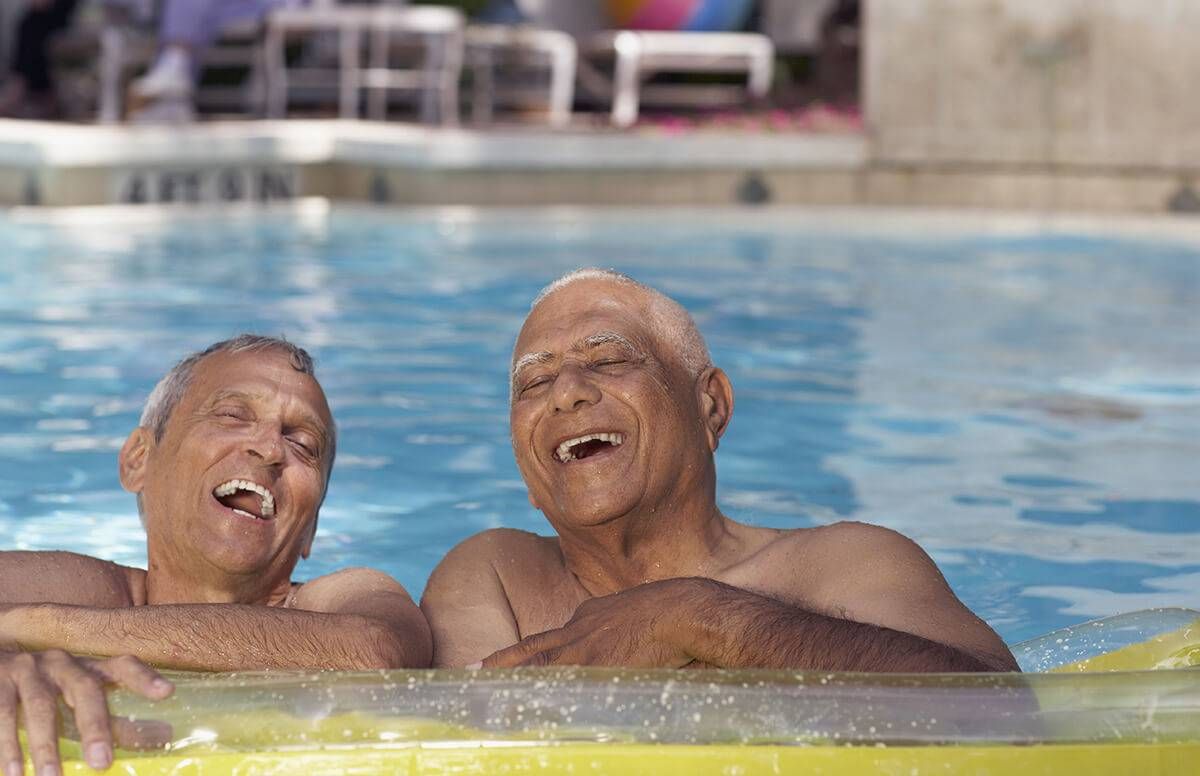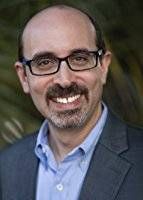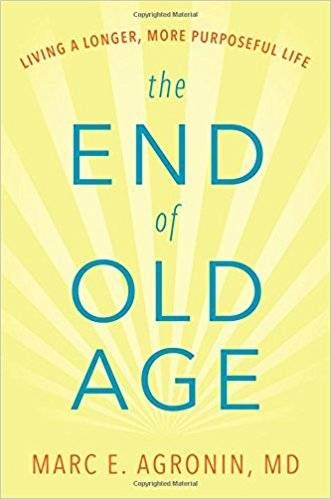Let's Get Rid of Those Tired Notions of Aging
In 'The End of Old Age,' Dr. Marc Agronin challenges Americans
Dr. Marc Agronin, a geriatric psychiatrist, may be best known for his Alzheimer’s work. Or, perhaps it’s the press he has gotten for helping to develop the first of its kind four-acre memory care village on the campus of Miami Jewish Health Systems.

Agronin, 52, works half-time seeing patients, most of whom are in their 80s and 90s. The rest is devoted to running a memory care center and overseeing a clinical research and a behavioral health program at Miami Jewish Health Systems.
And then there’s writing articles — he’s a contributor to The Wall Street Journal — and books. His latest, and ninth, The End of Old Age, was released this week.
Next Avenue recently spoke to Agronin during his down time (commuting home at the end of the day):
Next Avenue: What does your book title 'The End of Old Age' mean?

Dr. Marc Agronin: We need to end our commonly held negative view of being old and replace it with a more positive and dynamic view of aging. The title is also a play on words. Current books claim we can reverse or stop aging — that we can only look at old age as a disease, as something bad that we can’t cure. I think 'old' should be a badge of honor or distinction, but that’s not how it’s viewed.
The problem is, we don’t have a good term. Let’s stop using the existing negative terms of 'old age' and come up with a more positive and accurate lexicon.
When you look around, there is so much loss — of independence, control, physical and cognitive abilities. In your book you say, ‘Aging is not weakness or loss but strength.’ I’m not sure I get it.
Aging has the potential to bring strength at the same time it brings loss. These strengths are always there but not always recognized or engaged.
I work with a lot of individuals who get very demoralized or depressed over the loss of mobility, friends or relatives. But at the same time, they still retain interests, connections and skills. It’s that they don’t always have the confidence or the help or motivation to focus on those abilities.
I write about what people have taught me. These are not things I have made up on my own. I would never claim at age 52 to know what it is like to be 82 or 92.
What’s different between today’s aging demographic and the past?
Individuals today in their 80s and 90s didn't have role models when they were younger, because not many lived to that age. If they did, they were in worse shape because they didn’t have all the medical advances. So they are the first generation to take stock of the gains and losses, and traditionally they have only seen the losses.
Now we are increasingly seeing a focus on the gains. We have never had a cohort in their 80s and 90s who [have] such good physical resources and opportunities. They are teaching us how to age better, showing us the pitfalls and the promises.
Two areas to look at are adult education or lifelong learning, and travel. There is an explosion of both. People who had never before thought of taking classes are discovering, or rediscovering, interests and abilities. There are many travel services that cater to older individuals who might not have considered going to China or on a cruise and feel rejuvenated by it. They make new connections and find new love that the previous older generations never did.

Any suggestions on how to change our way of thinking?
People will often say, 'Well, this sounds nice, but practically, what do I do about it?' In this book, I present an action plan for readers. It is important for me to give simple, yet powerful exercises to put this philosophy into action.
But what about people with serious illness?
There is always something you can do to better a situation, but you have to be willing to persevere and be creative. If you’re in your 70s and 80s in general good health, the world is open to you to improve your situation. If you are 80 or 90 and have dementia, it is more limited, but still things can be done.
People come to me every day who need help. They have complex situations and sometimes they’re heartbreaking and seem insurmountable. You can throw up your hands and say, 'There’s nothing we can do, it’s old age.' I refuse to do nothing because it often turns into neglect.
It is true that there are certain diseases and situations we can’t cure or reverse. I get that. And certain situations where we have to accept reality. But I’ve seen it time and again where people give up. It leaves us to dehumanize ourselves or others. We lose all motivation to make anything better.
What stance do you want your doctor to take — of doing nothing or of trying to make the situation better for all involved?
I have found over the years as I speak, lecture and write about aging that I always hear the common refrain: 'That’s well and good but once you have dementia or go into a nursing home it’s terrible.' I want to push back on it. It conflates old age and aging with absolute misery, and it is simply not true. If that is how we think about aging, it will have a profound negative effect on our lives.
How do you imagine your own old age?
I have so much to do and explore, I’m excited! If you told me I’m going to live to be 120, I’d be worried that it’s not enough time. I’m excited about deepening my relationships with my family, getting more involved in spirituality and religion and writing my family histories. I have manuscripts from my grandfather and my great grandfather.
OK, you’re the geriatrician and many of our readers are boomers who worry about getting older. What would you say?
You will have more freedom to do things that you couldn’t before, whether it’s new travels or relationships or volunteering, of making a change that is more meaningful.
If you begin to shift your focus from what lies ahead to what you can learn, grow and create, it will give you a sense of anticipation and excitement as to what aging can be. I tell people, 'As you get older, stop with these birthday cards and jokes that poke fun at aging and put us down.' Think about what you have gained and achieved.
I’m not ignoring the challenges [nor do I] have a Pollyanna view. I think it’s a more accurate view. If you believe that aging is a disease and a process of decline and decay, it may lead you not to take steps that will enhance your own life or that of others.
That’s only half the picture. Aging is a precious part of life and we need to do everything possible to engage with it, embrace it and use it as a positive force.

